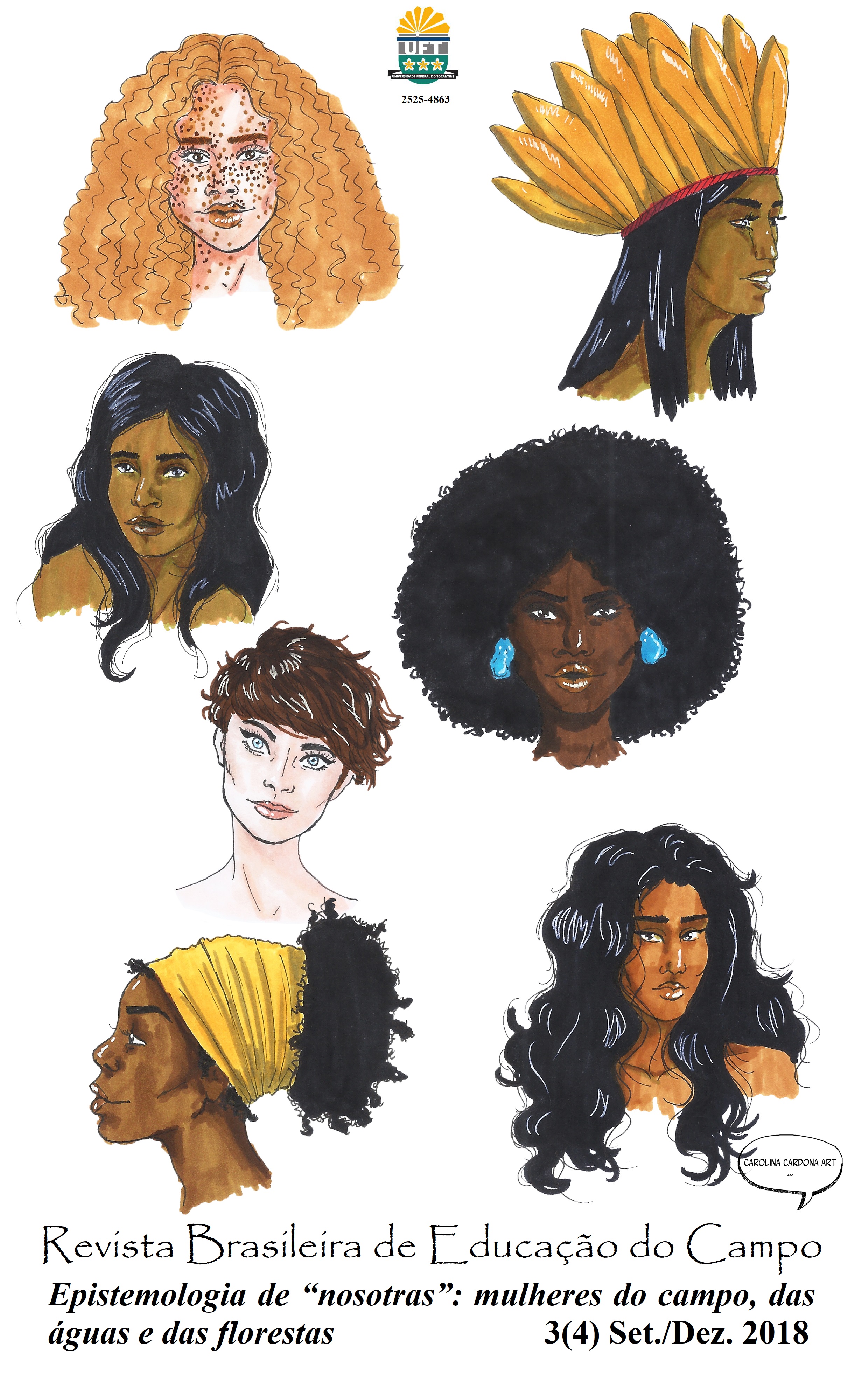Educational experiences and empowerment of Kaingang indigenous women: teacher training in rural education
DOI:
https://doi.org/10.20873/uft.2525-4863.2018v3n4p1268Abstract
ABSTRACT. This work aims to understand the context of Kaingang indigenous women in the Interdisciplinary Course in Rural Education: Natural Sciences - Licentiate of Federal University of Southern Border (UFFS), Campus Erechim, discussing aspects such as the educational experiences of female participation in construction of scientific knowledge and the empowerment of indigenous women with their inclusion in higher education. The methodology used has a qualitative approach of an interpretive nature and the research, in relation to the technical procedures, is bibliographical and documentary. The data were constructed using the Pedagogical Proposal of the Course (PPC), the observation of the experiences and the UFFS Academic Registry. The main results show that the Kaingangs indigenous women have a high degree of representation in the course in Rural Education in the training of teachers in the area of Natural Sciences, thus realizing that the insertion of Kaingang women in higher education contributes to the construction of autonomy, empowerment and resistance of indigenous peoples. These results point to the importance of indigenous female participation in the construction of scientific knowledge and its re-signification, taking into account the social and cultural dynamics of the peoples of the countryside.
Downloads
Published
How to Cite
Issue
Section
License
Proposal for Copyright Notice Creative Commons
1. Policy Proposal to Open Access Journals
Authors who publish with this journal agree to the following terms:
A. Authors retain copyright and grant the journal right of first publication with the work simultaneously licensed under the Creative Commons Attribution License that allows sharing the work with recognition of its initial publication in this journal.
B. Authors are able to take on additional contracts separately, non-exclusive distribution of the version of the paper published in this journal (ex .: publish in institutional repository or as a book), with an acknowledgment of its initial publication in this journal.
C. Authors are permitted and encouraged to post their work online (eg .: in institutional repositories or on their website) at any point before or during the editorial process, as it can lead to productive exchanges, as well as increase the impact and the citation of published work (See the Effect of Open Access).















